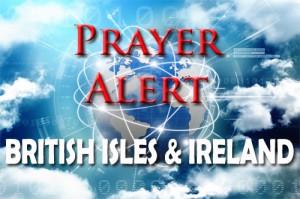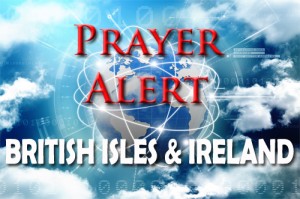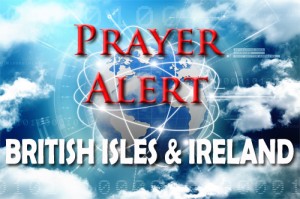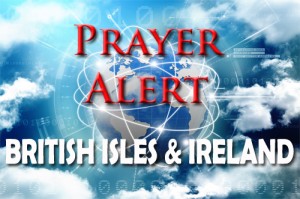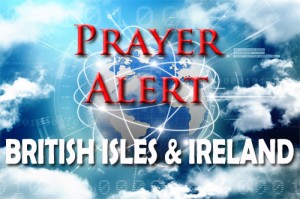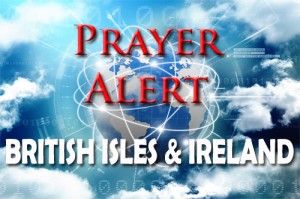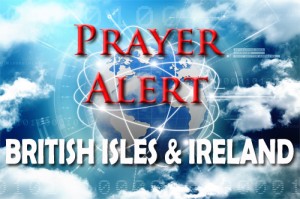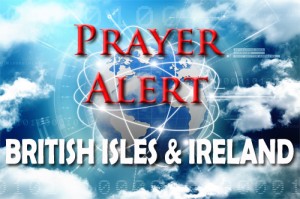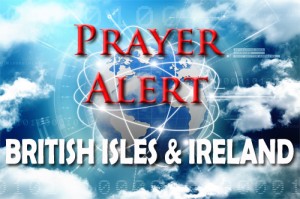‘100 Days of Peace and Hope’
Churches around the country have begun 100 days of prayer for peace to mark the centenary of the end of the First World War. A similar national day of prayer was held on 4 August 1918; 100 days after this, Armistice Day occurred. Communities across the country are being encouraged to organise peace prayer events, community peace talks, peace festivals, peace arts and poetry competitions, peace projects and many more community building activities. In London, people are praying for peace, especially in the light of rising knife crime. Blackburn Cathedral invites people to ‘come in and light a candle or use our prayer resources over the next 99 days’.
UCB’s Big Weekend Walk
From 5 to 7 October, UCB are asking churches across the UK (and anyone else who wants to get involved) to help raise support for UCB, by going for a walk! It might be a sponsored stroll with a few friends, an organised walk with people after church on Sunday, or people might even take on a much more challenging hike across the whole of the UK. Every single mile walked by every single person counts! The UCB team will be walking to add to the big total. They said, ‘Between us, can we walk enough miles to cover the distance from John O’Groats to Land’s End, and raise funds for UCB to share God’s Word the length and breadth of the UK at the same time?’
NHS and transgender fertility coverage
The Equality and Human Rights Commission (EHRC) called on Britain’s NHS to update its policy regarding fertility service coverage, alleging ‘current policy discriminates against transgender people.’ The EHRC wrote a pre-action letter to the NHS pressuring Britain’s health care system to change ‘outdated’ fertility policies, saying that policies should cover the cost of egg-freezing procedures for transgenders because many become infertile as a result of hormone treatments. The transgender and LGBT communities applauded the EHRC objections, ‘We welcome this challenge from the EHRC,’ said Stonewall’s director of campaigns. ‘We know the government are committed to improving health and social care provision for all LGBT people, and addressing barriers to fertility support would be a positive step forward in this process.’ On August 1 Stonewall tweeted, ‘The government consultation on reforming the outdated Gender Recognition Act has launched. We want the voices of trans people and allies heard loud and clear. Find out more #ComeOutForTransEquality in the #GRA consultation
Defend burka like you defend the cross
Ruth Davidson - who is the leader of the Scottish Conservatives - has been speaking out following the comments by Boris Johnson about the Burka. The Christian MSP suggested we should defend the right of Muslim women to wear the burka in the same way we defend the right of Christians to wear a cross. She was speaking after the former foreign secretary compared the burka to a letter box and women who wear it to look like bank robbers. Theresa May asked him to apologise. With no apology forthcoming, founder and president of the Conservative Muslim Forum Lord Sheikh said the party should take ‘severe action’ against Mr Johnson. On the other hand, Christian, Jacob Rees-Mogg, said there was no need for Mr Johnson to apologise and an imam who has previously criticised the burka said Mr Johnson should not ‘apologise for telling the truth’. The debate continues.
A Christian ministry for people with learning difficulties
‘Prospects’ groups are based on two main principles. Firstly, that all people should have an opportunity to hear the Christian message including those with learning disabilities, and secondly, all people are capable of responding to the Christian message because it is a matter of belief and trust, not intellect and ability. In the UK one in fifty people have learning disabilities and Prospects seeks to befriend such people, explain the Christian message in a relevant way, and provide a sympathetic environment where people can grow in their understanding and respond to the message. Prospects meetings can be held in church halls, for meeting-centred ministry, or in the home of a helper, or a residential home for friendship-centred ministry. Helpers make home visits, take people out, provide transport and above all engage in personal discipleship in a way that people with special needs can respond to.
Modern Slavery
More than 5,000 potential modern slaves were referred for help last year but the CPS only prosecuted 239 suspects, a small fraction of potential cases flagged to authorities. The Crown Prosecution Service (CPS) said it was committed to improving its response to forced labour and sexual and criminal exploitation after MPs warned that a national strategy had ‘yet to result in coherent action’. Alison Saunders, the outgoing director of public prosecutions, said, ‘Modern slavery has a devastating, lasting impact on its victims. There is no place in our society for those who enslave others, whether for work, sexual or criminal exploitation or domestic servitude. Referrals to the CPS from police and agencies rose by a third and prosecutors said the increase was part of a ‘dedicated drive to clamp down on slavery-related crime’.
Intercessor Focus: Christian holidays
Across the country youth workers and church members will be running holiday clubs this summer. Pray for energy and innovation for all the leaders; for peace to permeate each activity, regardless of any unforeseen pressures; for safety for all and for incredible relationship-building across the age ranges; for all the different holiday club material to be used wisely; and for God to anoint with power those who are gifted in storytelling, leading music, dance, arts, crafts, games and creative teaching. May thousands of young people recognise God's love for them this summer and respond to His call on their lives. Pray for the Church to impact not just the children but whole communities, as families are inspired through outdoor Christian celebrations, church fetes, and parties. Pray also for all the many week-long Christian mission retreats, Bible weeks and camping events. May millions of lives be challenged and changed this summer.
Incident at HTB's summer festival
Hampshire police were called at 5:06 am on Wednesday 1 August after a report of a 21-year-old woman being sexually assaulted at the Focus Festival (held at the Somerley Estate, near Ringwood). The event, hosted by Holy Trinity Brompton church, sees thousands of Christians gather for a week of teaching, worship and fellowship. Delegates at the festival reported seeing police on site as campers were packing up to leave the event, which had finished the previous day. The victim is receiving support from specialist officers, and a 54-year-old man was arrested on suspicion of rape. He remains in custody. The Focus festival has been running since 1992.
Right to die law changes
The Supreme Court ruled on 30 July that hospitals can now end life-sustaining care for patients without the need to seek court approval, if families and doctors are in agreement. The ruling was said to ‘clarify the law’, and avoids the need in many cases for families to come to court. Judicial approval will now not be required to withdraw life-prolonging treatments from patients with a prolonged disorder of consciousness such as being in a minimally-conscious or persistent vegetative state - if families and medical staff agree. Previously, some NHS Trusts were unsure as to whether they might find themselves liable to legal action if they went ahead with withdrawal of treatment before seeking permission. The court, led by Lady Black, ruled that to take such action was not a breach of a patient’s human rights. Many Christians believe this decision does not reflect the ‘views of the pews’. The Christian Medical Fellowship said it is never humane to end someone else's life. See
Aid sector sex scandal
A damning report from MPs said the aid sector is guilty of complacency verging on complicity over an ‘endemic’ sex abuse scandal’, and charities were more concerned to protect their reputation than victims. Safeguarding policies were never effectively implemented. Leaders were ‘self-deluded’, thinking they had addressed problems before they became public. MPs insisted more resources were needed to tackle the issue, and victims must be at the heart of solutions. Charities must ensure the beneficiaries of humanitarian aid have knowledge and confidence in their rights. An earlier report, by UNHCR and Save the Children, found it was mainly men in refugee camps who demanded sex in exchange for biscuits, soap, medicines, etc. Oxfam said the report was painful reading for the whole aid sector. ‘We have made mistakes handling historical sexual harassment complaints from staff in the UK - there is a great deal more to do’. An international summit in October will expect the sector to have demonstrated progress by then.

